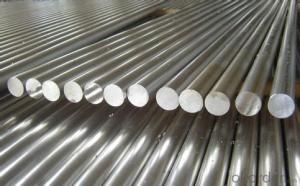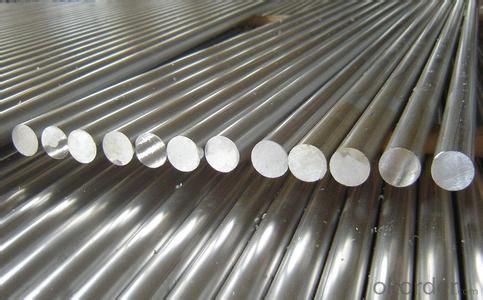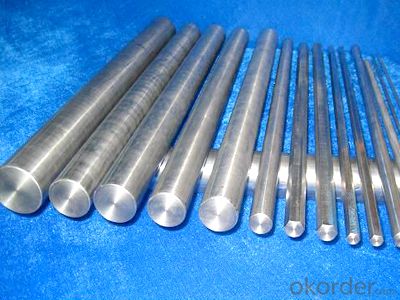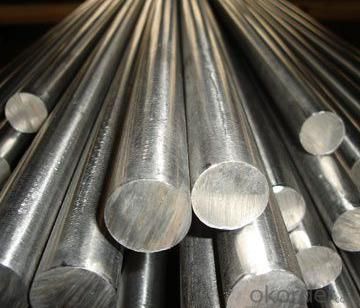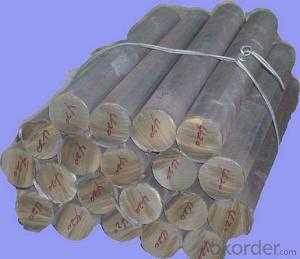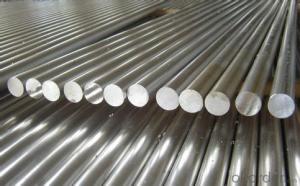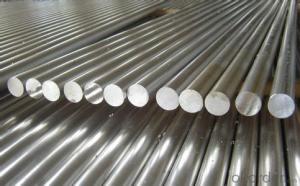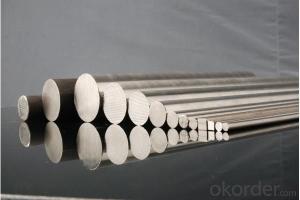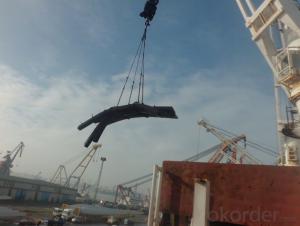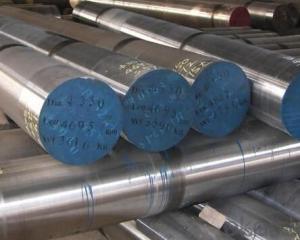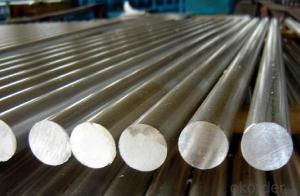Grade 316 Stainless Steel Bar Round Square Hexagonal
- Loading Port:
- Shanghai
- Payment Terms:
- TT OR LC
- Min Order Qty:
- 3 m.t.
- Supply Capability:
- 100000 m.t./month
OKorder Service Pledge
OKorder Financial Service
You Might Also Like
Specification
Grade 316 Stainless Steel Bar Round Square Hexagonal
Details Information of Grade 316 Stainless Steel Bar Round Square Hexagonal
| Name | 316 stainless steel bar |
| Shape | Round Bar/Square Bar/Flat Bar/Plate/Wire |
| Standard | GB/ASTM/SAE/AISI/DIN/JIS/EN/BS |
| Surface Treatment: | Black/Peeling/Polished/Machined |
| Delivery Condition: | Hot Rolled or Forged/Peeled or Black Surface |
| Test | SGS/UT 100% Elements Testing |
| Certificate: | ISO/Mill Certificate |
| Service: | 24 hours online service / |
| more than 20 years trading and manufacture | |
| Quality Assurance: | the third party inspection, such as SGS, BV, TUV…etc. is acceptable |
| Packaging Details: | Seaworthy Packaging or as per customer's packing instruction |
| Carbon structure round bar | Q195 Q235A Q235B 10# 20#-55# S45CB |
| Low alloy high strength round bar | Q345A/Q345C/Q345D Q345B Q345E |
| Alloy structure round bar | SAE51B20 20Cr 40Cr 40CrV 20CrMo/30CrMo/35CrMo/42CrMo 20CrMoA/30CrMoA/35CrMoA/42CrMoA/42Cr ML20CrMo/ML30CrMo/ML35CrMo/ML42CrMo B7/SCM435-440 20MnTiB 20CrMnMo 20CrMoH 42CrMoH 40MnB/40MnBH 30Mn2-40Mn2 27SiMn 50CrVA 30CrMnTi |
| Pinion steel | 20CrMnTi 20CrMnTiH 20CrMnTiHCS/20CrMnTiHLD Q20CrMnTi-1/Q20CrMnTi-2 |
| Sucker rod | 20-35CrMoA |
| Free-cutting steel | GT1215S |
| Spring steel | 60Si2MnA 65Mn |
| Ball bearing steel | GCr15 |
Chemical Composition of Grade 316 Stainless Steel Bar Round Square Hexagonal
| C | Si | Mn | P | S | Cr | Ni | Cu |
| 0.17-0.24 | 0.17-0.37 | 0.35-0.65 | ≤0.035 | ≤0.035 | ≤0.25 | ≤0.25 | ≤0.25 |
| Tensile strength (σb/MPa) | Yield strength (σb/MPa) | Elongation (δ5/%) |
| ≥410(42) | ≥245(25) | ≥25 |
Company Introduction of Grade 316 Stainless Steel Bar Round Square Hexagonal
CNBM International Corporation is the most import and export platform of CNBM group(China National Building Material Group Corporation) ,which is a state-owned enterprise, ranked in 270th of Fortune Global 500 in 2015.
With its advantages, CNBM International are mainly concentrate on Cement, Glass, Iron and Steel, Ceramics industries and devotes herself for supplying high quality series of refractories as well as technical consultancies and logistics solution.
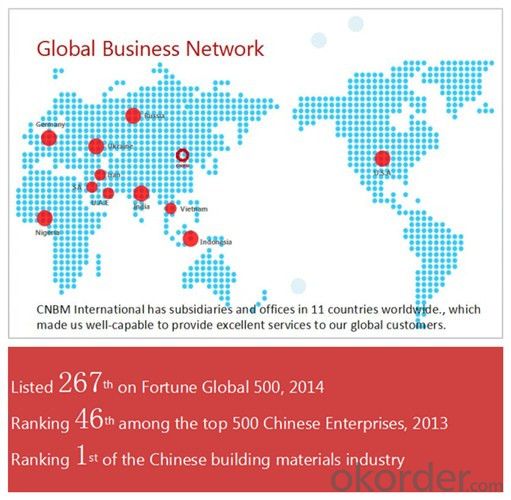
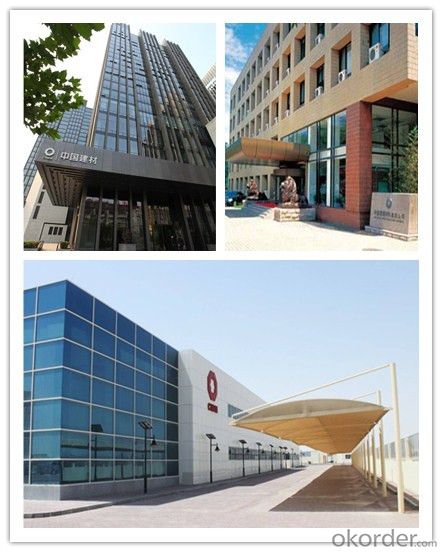
Certificates of Grade 316 Stainless Steel Bar Round Square Hexagonal
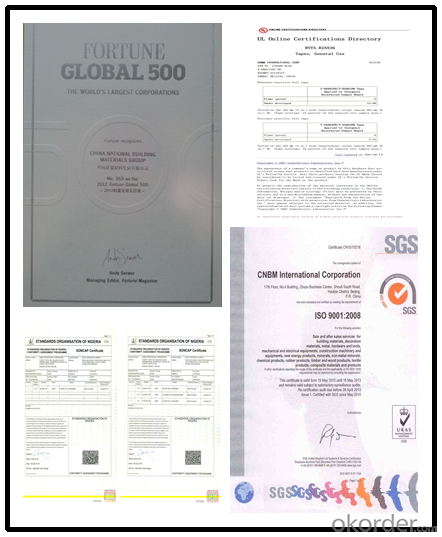
Packaging & Delivery of Grade 316 Stainless Steel Bar Round Square Hexagonal
Packaging Detail | Sea worthy packing /as per customer's packing instruction |
Delivery Detail | 15 ~ 40 days after receiving the deposit |
Products show of Grade 316 Stainless Steel Bar Round Square Hexagonal
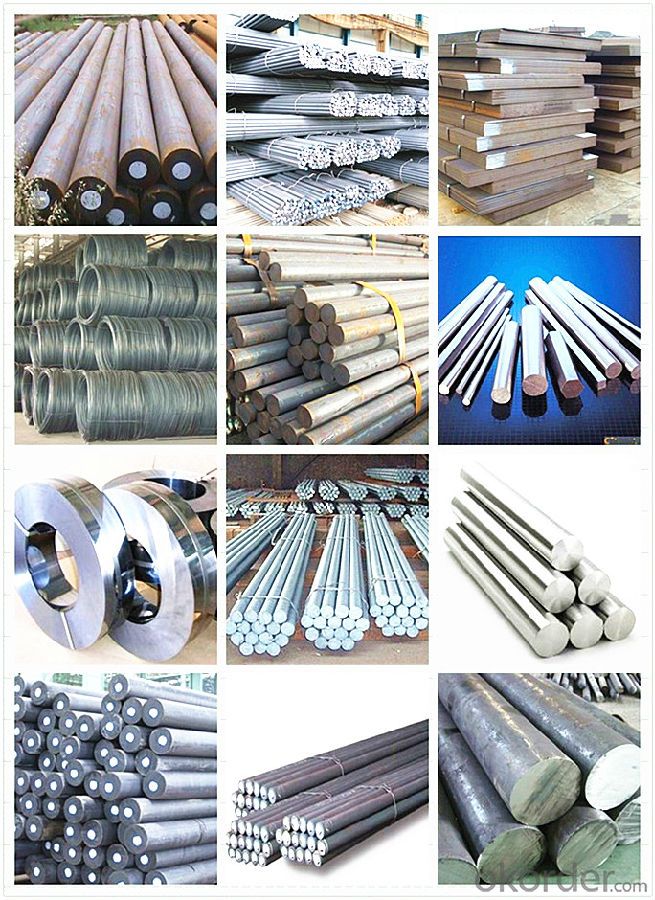
FAQ
Are you a trading company or manufacturer? | Manufacturer |
What’s the MOQ? | 3 metric ton |
What’s your delivery time? | 15-35 days after downpayment received |
Do you Accept OEM service? | Yes |
what’s your delivery terms? | FOB/CFR/CIF |
What's the Payment Terms? | 30% as deposit,70% before shipment by T/T |
Western Union acceptable for small amount. | |
L/C acceptable for large amount. | |
Scrow ,Paybal,Alipay are also ok | |
Why choose us? | Chose happens because of quality, then price, We can give you both. Additionally, we can also offer professional products inquiry, products knowledge train (for agents), smooth goods delivery, excellent customer solution proposals. |
What's your available port of Shipment? | Main Port, China |
What’s your featured services? | Our service formula: good quality+ good price+ good service=customer's trust
|
Where are your Market? | Covering more than 160 countries in the world |
- Q: What are the main factors affecting the cost of special steel?
- The main factors affecting the cost of special steel include the cost of raw materials, such as iron ore and other alloying elements, as well as the cost of energy required for the manufacturing process. Other factors include the complexity of production methods, the level of demand and supply in the market, transportation costs, and any additional costs associated with quality control and compliance with industry standards.
- Q: What are the different types of case-hardening steel?
- There are several different types of case-hardening steel, including carburizing steel, nitriding steel, and cyaniding steel.
- Q: How does special steel contribute to the durability of products?
- There are several ways in which special steel enhances the durability of products. Initially, special steel's notable qualities of high strength and hardness make it resistant to wear and tear. As a result, products constructed from special steel can endure heavy usage and outlast those made from regular steel or alternative materials. Moreover, special steel commonly incorporates other elements like chromium, nickel, and molybdenum, which heighten its resistance to corrosion. This is particularly crucial for products exposed to harsh environments or chemicals. The corrosion resistance of special steel aids in preventing rust and deterioration, thus increasing the product's lifespan. Additionally, special steel can undergo heat treatment to enhance its mechanical properties, including toughness and hardness. Through specific heating and cooling processes, heat-treated special steel becomes stronger, rendering it less susceptible to deformation and breakage. This is especially advantageous for products subjected to heavy loads or impacts. Furthermore, special steel is often manufactured with precise composition and microstructure, resulting in improved material properties. This encompasses superior fatigue resistance, implying that the material can endure repeated stress without developing cracks or breaking. Consequently, products made from special steel exhibit enhanced reliability and are less prone to failure. In conclusion, special steel significantly contributes to product durability through its high strength, corrosion resistance, improved mechanical properties, and superior fatigue resistance. By incorporating special steel into the manufacturing process, products can be designed to withstand various demanding conditions, ensuring a longer lifespan and greater reliability.
- Q: What are the applications of special steel in the automotive supply chain?
- Special steel has various applications in the automotive supply chain. It is widely used in the manufacturing of engine components, such as crankshafts, camshafts, and connecting rods, due to its high strength and resistance to wear. Special steel also finds application in the production of suspension and steering components, as well as gears and shafts, which require excellent toughness and durability. Moreover, it is utilized in the fabrication of safety-related parts like seat belt anchors and airbag systems, ensuring the necessary strength and reliability. Overall, special steel plays a crucial role in enhancing performance, safety, and efficiency in the automotive industry.
- Q: What are the environmental impacts of using special steel?
- The use of special steel can have several environmental impacts. Firstly, the production of special steel involves the extraction of raw materials such as iron ore and coal, which can lead to deforestation, habitat destruction, and loss of biodiversity. The mining process can also result in the release of pollutants into the air, soil, and water, contributing to air and water pollution. Another environmental impact of special steel production is the emission of greenhouse gases, particularly carbon dioxide (CO2), during the manufacturing process. The high temperatures required to melt and shape the steel, as well as the energy-intensive processes involved, result in significant CO2 emissions. These emissions contribute to climate change and global warming. Furthermore, the transportation of special steel can also have environmental consequences. The shipping and logistics involved in transporting the steel from production facilities to end-users can result in additional greenhouse gas emissions, air pollution, and fuel consumption. Additionally, the disposal of special steel products at the end of their lifecycle can pose environmental challenges. If not properly recycled or disposed of, steel products can end up in landfills, taking up valuable space and potentially leaching harmful substances into the environment. Despite these environmental impacts, it is important to note that special steel is often used in various industries due to its durability, strength, and resistance to corrosion. Efforts are being made to mitigate these impacts through the adoption of cleaner production methods, such as recycling and using renewable energy sources in the steel manufacturing process. Additionally, initiatives like carbon capture and storage are being explored to reduce greenhouse gas emissions from steel production. Overall, while the use of special steel provides numerous benefits, it is critical to balance these advantages with the need to minimize its environmental impacts through sustainable production and responsible disposal practices.
- Q: What are the common surface treatments applied to special steel?
- Some common surface treatments applied to special steel include galvanizing, powder coating, electroplating, and heat treatments such as case hardening. These treatments help improve the corrosion resistance, hardness, and appearance of the steel, making it suitable for various applications in industries like construction, automotive, and aerospace.
- Q: Can special steel be used in extreme weather conditions?
- Yes, special steel can be used in extreme weather conditions. Special steel is known for its excellent strength, durability, and corrosion resistance, making it a suitable material for various applications, including those in extreme weather conditions. For example, stainless steel, which is a type of special steel, is widely used in environments with high moisture or salt content, such as coastal areas or marine structures. It can withstand the corrosive effects of saltwater and resist rusting, making it ideal for prolonged exposure to extreme weather conditions. Additionally, special steel alloys can also be specifically designed to withstand extreme temperatures, such as those found in arctic or desert environments. These alloys can maintain their mechanical properties and structural integrity even in extreme cold or hot temperatures. Overall, special steel is a versatile material that can be utilized in various industries and applications, including those in extreme weather conditions, due to its exceptional strength, durability, and resistance to corrosion.
- Q: How is special steel used in the textile supply chain?
- Special steel is used in the textile supply chain for various applications such as manufacturing textile machinery, equipment, and tools. The high strength and durability of special steel make it ideal for creating components that can withstand the demanding conditions of textile production, including high temperatures, corrosion, and heavy loads. It is commonly used in the production of spinning machines, looms, needles, and other crucial parts, ensuring efficient and reliable textile manufacturing processes.
- Q: What are the different methods of surface cleaning for special steel?
- Special steel can be cleaned using various methods, each with its own benefits and uses. Some commonly used methods include: 1. Mechanical Cleaning: To eliminate dirt, rust, or other impurities from the steel surface, mechanical tools like wire brushes, sandpaper, or abrasive pads are employed. This method is effective for light to moderate contamination and is often used as a preliminary step before other cleaning methods. 2. Chemical Cleaning: Specific chemicals or cleaning agents are used to dissolve or loosen contaminants on the special steel surface. These chemicals can be applied by brushing, spraying, or immersion. Acid-based cleaners are commonly used for removing scale, rust, or oxide deposits, while alkaline cleaners are effective for eliminating oils, greases, or organic residues. 3. Electrochemical Cleaning: Electrochemical reactions are utilized to eliminate surface contaminants from special steel. This method involves applying an electric current and an electrolyte solution to dissolve or dislodge dirt, rust, or other deposits. It is particularly useful for cleaning intricate or hard-to-reach areas on the steel surface. 4. Ultrasonic Cleaning: High-frequency sound waves in a liquid medium are used to agitate and remove contaminants from the special steel surface. This method is highly effective for eliminating fine particles, oils, greases, or other organic residues from complex or delicate surfaces. 5. High-pressure Water Jetting: A concentrated stream of pressurized water is employed to remove contaminants from the special steel surface. This method is particularly useful for eliminating heavy deposits, coatings, or paints from large areas. The pressure levels can be adjusted to accommodate different degrees of surface contamination. It is important to consider factors such as the type and extent of contamination, the condition of the steel surface, the desired level of cleanliness, and the specific requirements of the application when choosing a surface cleaning method for special steel. Consulting with experts or professionals in the field is recommended to determine the most suitable method for a given situation.
- Q: How is high-strength steel used in the automotive industry?
- High-strength steel is extensively used in the automotive industry for various applications such as structural components, safety systems, and body panels. It provides enhanced strength and durability while reducing the weight of vehicles, thereby improving fuel efficiency and overall performance. Additionally, high-strength steel also ensures increased passenger safety by reinforcing the vehicle's structure and offering better crash protection.
Send your message to us
Grade 316 Stainless Steel Bar Round Square Hexagonal
- Loading Port:
- Shanghai
- Payment Terms:
- TT OR LC
- Min Order Qty:
- 3 m.t.
- Supply Capability:
- 100000 m.t./month
OKorder Service Pledge
OKorder Financial Service
Similar products
Hot products
Hot Searches
Related keywords
